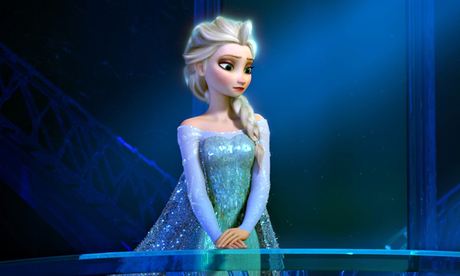
Movies which pass the "Bechdel test" are just as likely to be profitable than those which do not, contrary to received thinking in Hollywood, according to a comprehensive new survey. The study also suggested that "films that feature meaningful interactions between women may in fact have a better return on investment, overall, than films that don't".
ESPN blog FiveThirtyEight examined 1,615 films released between 1990 and 2013 in an effort to test the theory that female-centric movies are less likely to make money for studios. The Bechdel test was invented in 1985 by cartoonist Alison Bechdel, as a way of measuring gender equality in film-making: to pass, movies must feature at least two named women having a conversation with each other about something or somebody other than a man.
The survey found the average gross return for a film that passed the test was $2.68 (£1.61) for each dollar spent, compared to just $2.45 (£1.47) for a film that failed the test. This was despite male-centric movies receiving higher budgets: an average of $48.4m (£29m) to just $31.7m (£19.9m) for those that passed the test.
Overall just 53% of surveyed movies made between 1970 and 2013 passed the test, though FiveThirtyEight pointed out that Bechdel's criteria do not always make for the perfect barometer of gender equality. The Oscar-winning film Gravity, which centres almost entirely on Sandra Bullock's floundering astronaut, does not pass the test, because Bullock fails to speak to another woman once in the course of the Alfonso Cuarón space drama's 93-minute running time.
The survey did find that more movies are passing the test over time. In the past few years, adaptations of young adult novels such as Twilight, The Hunger Games and Divergent, have found huge box-office success with female-fronted material. The animated hit Frozen, which this weekend became the highest-grossing film of its type of all time, easily passes the Bechdel test, with a plot that centres on two princesses forced to separate when one develops terrifying powers.
A study commissioned by the Sundance film festival and Women in Film found last year that female directors remained woefully under-represented in Hollywood, though they appeared in greater numbers in the field of independent film. Between 2002 and 2013, only 4.4% of the top-grossing Hollywood films were directed by women, the survey found. Even at Sundance, which prides itself on its gender equality, women represented fewer than one-third of workers on the 820 narrative and documentary films that have appeared at the festival since 2002.
Gender disparity in film-making has long been an issue, but raised its head firmly above the parapet at the 2012 Cannes film festival when it emerged that not one of the directors vying for the prestigious Palme d'Or prize was female. Organisers later apologised for the oversight following strident criticism from French feminists and critics.
• This article was amended on 3 April 2014 to reflect the fact that the research cited largely suggested Bechdel test films did not perform worse than non-Bechdel, rather than necessarily being more profitable

